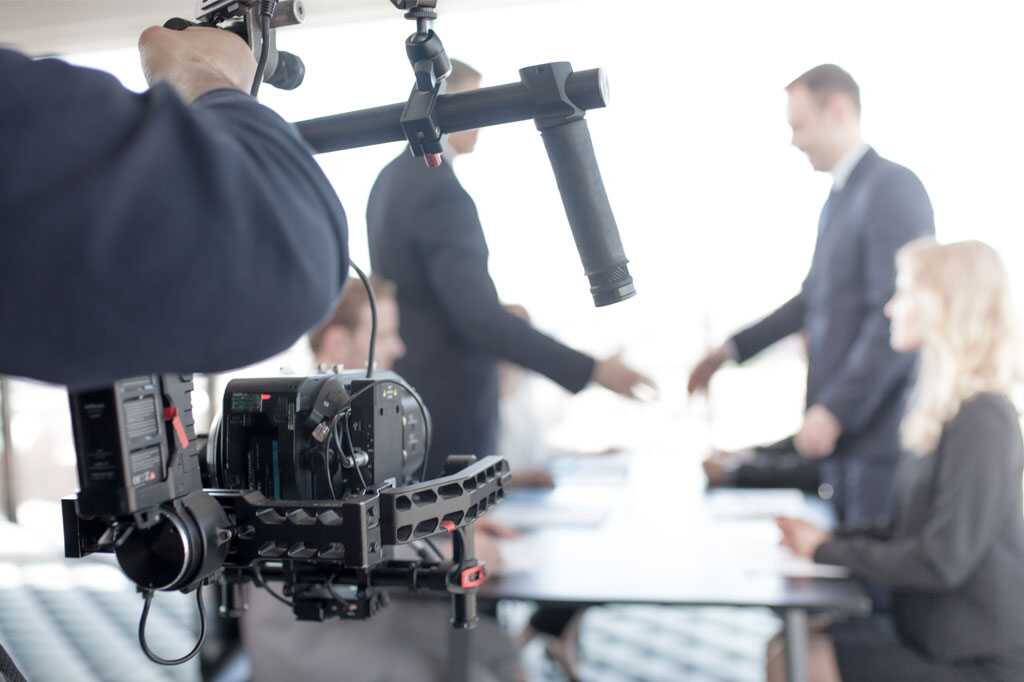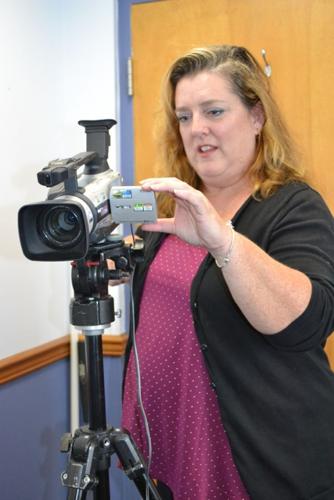Discovering the Various Sorts Of Legal Videographers and Their One-of-a-kind Offerings
Legal videographers play an essential duty in the judicial procedure, each concentrating on distinctive aspects of court room documents. Their know-how ranges from capturing witness testimonies to enhancing trial discussions. Comprehending the different offerings of these experts can illuminate their contributions to legal procedures. As the complexities of modern lawsuits expand, the value of their functions comes to be progressively evident. What particular functions do these videographers offer, and just how do they affect the outcomes of instances?
Comprehending Legal Videography
Legal videography plays a necessary function in the judicial process, offering aesthetic paperwork that can enhance the quality and precision of legal procedures. This specialized area includes catching video recordings of numerous legal occasions, such as trials, hearings, and various other significant minutes within the legal system. Legal videographers use sophisticated equipment and strategies to guarantee high-quality video, which can serve as crucial evidence throughout litigation.Understanding legal videography requires acknowledging its value in conveying details in a visual layout. The tape-recorded video can help courts and courts much better understand the context and nuances of statements and events, possibly influencing decisions. In addition, legal videographers need to follow strict standards and criteria to preserve the stability of the recordings. Their work not only help in maintaining a thorough account of procedures yet also contributes to the total transparency and liability within the legal framework, making sure that justice is offered effectively.
Deposition Videographers
Deposition videographers play a necessary duty in legal proceedings by tape-recording witness statements for future referral. They make use of customized devices and strategies to assure top quality video paperwork that precisely captures the nuances of each deposition. Recognizing their methods and the relevance of their job can improve the efficiency of legal discussions.
Function in Legal Procedures
While commonly forgotten, the duty of videographers in legal process is crucial, specifically throughout depositions. These experts record witness testimonies, capturing both verbal and non-verbal cues that can be pivotal in court. Their recordings function as an exact depiction of the deposition, offering a trustworthy recommendation for attorneys and juries. Videographers assure that the setting is expert, reducing interruptions and sticking to legal criteria. They are trained to handle numerous circumstances, including unanticipated disruptions or technical difficulties, guarding the stability of the recorded product. Furthermore, the presence of a videographer can prevent evasive actions from witnesses, promoting even more candid responses. On the whole, their contributions substantially improve the quality and efficiency of legal proceedings.
Tools and Techniques Made Use Of
The equipment and strategies utilized by deposition videographers are crucial for producing top notch recordings that accurately catch witness testaments. Professional-grade video cameras, often with 4K resolution, assurance clear visuals, while high-fidelity microphones record audio without distortion. Videographers normally employ tripods for stability and lights equipment to improve presence, particularly in less-than-ideal settings. Methods such as mounting the witness correctly and keeping appropriate angles are vital for sharing body language and expressions. Lots of deposition videographers additionally utilize digital modifying software to enhance the final item, assuring clarity and coherence. Furthermore, they may integrate time-stamping and annotations throughout post-production to help with recommendation during legal procedures, eventually supplying an extensive and trustworthy document of the deposition.
Test Discussion Videographers
Test discussion videographers play an essential duty in court room setups by properly envisioning proof and improving the narration procedure. Making use of innovative technology and customized equipment, they create engaging discussions that assist juries and judges grasp complex information. Their knowledge in efficient storytelling strategies better boosts the effect of legal disagreements during trials.
Role in Courtroom Settings
Regularly, legal videographers play an essential role in court room settings by capturing and offering visual evidence that boosts the clarity of legal arguments. These specialists focus on documenting witness testaments, depositions, and important evidence, ensuring that the procedures are accurately videotaped for future recommendation. Their job not only help in the instant discussion of situations but likewise functions as a useful resource throughout appeals or evaluations. Test view it now presentation videographers diligently put together and modify footage to produce engaging visual stories that attorneys can utilize to persuade discretionary. By incorporating visual aspects right into the trial, they substantially add to the general performance of the legal procedure, helping with a much more enlightened decision-making environment within the court.
Modern Technology and Equipment Utilized
Modern test discussion videographers rely on sophisticated innovation and customized equipment to efficiently catch and existing proof in the courtroom. High-definition cams are usually used to guarantee that every detail is taped with clearness, while numerous electronic camera angles can enhance the visual narrative. Videographers often use cordless microphones to catch clear sound from witnesses and lawyers, minimizing interruptions. Furthermore, advanced software application tools permit real-time modifying and seamless integration of video clips, images, and exhibits throughout discussions. Projectors and big screens are typically employed to display content in an interesting fashion, seeing to it that jurors and judges can easily follow the process. This mix of innovation and devices is essential for creating impactful court room discussions that assist in understanding and retention of information.
Efficient Narration Methods
Capturing high-grade video clip and sound is simply the beginning for trial discussion videographers; efficient narration techniques play an essential role in sharing complex legal stories. These specialists employ numerous techniques to boost the clarity and influence of the material provided. By meticulously structuring the visual and audio components, they create a meaningful circulation that guides jurors via the facts of the situation. Making use of techniques such as thematic framing, sob story, and rational development, they stress essential factors and bolster the overall disagreement. In addition, integrating visuals, such as representations or computer animations, can streamline intricate ideas and maintain the target market involved. Ultimately, trial presentation videographers change raw video right into compelling stories that resonate with jurors, helping with educated decision-making in the court room.
Video Clip Proof Specialists
Video evidence specialists play a crucial duty in the legal procedure, making certain that aesthetic recordings are accurately captured, preserved, and presented in court. These experts are trained to deal with a range of videotaping tools and strategies customized especially for legal setups. They concentrate on getting high-quality recordings that can withstand analysis, sticking to rigorous procedures to preserve the stability of the evidence.Often associated with the paperwork of criminal offense scenes, depositions, and witness statements, video clip proof experts are knowledgeable in developing video footage that is both clear and trustworthy. They are likewise well-informed about legal standards and needs, making certain that their job adheres to jurisdictional policies. Furthermore, these specialists might help in the post-production process, modifying and formatting video clips for finest presentation. Their experience help attorneys in properly communicating their Learn More Here cases, making the duty of video evidence experts necessary in the pursuit of justice.
Court Videographers
While the court room usually acts as the phase for vital legal proceedings, court videographers guarantee that these minutes are go to my site documented with accuracy and clarity. Their main duty is to catch all facets of a trial, consisting of witness testimonies, opening up and shutting statements, and court reactions. Using customized devices, court room videographers guarantee that audio and video clip quality satisfy the criteria required for legal documentation.These experts are experienced at working unobtrusively within the court room environment, navigating via the required methods and maintaining the integrity of the legal process. They often work together carefully with lawyers to recognize particular requirements, making sure that crucial elements are tape-recorded for future reference.Furthermore, court room videographers play an important function in maintaining the credibility of the process, providing a vital source for allures or more lawsuits. Their competence assurances that all videotaped product acts as a dependable account of the court occasions for all celebrations included.

Post-Production Providers and Modifying

After the court process are tape-recorded, the emphasis moves to post-production solutions and modifying, which play a substantial function in improving the captured material. Legal videographers use specialized software to improve video quality, ensuring clearness and professionalism. This phase frequently includes shade correction, audio enhancement, and the elimination of any supplementary video, creating a meaningful story that straightens with legal standards.Additionally, videographers may incorporate graphics, comments, or captions to give context or emphasize crucial info. The editing and enhancing procedure also involves organizing the footage chronologically or thematically, making it much easier for legal groups to reference details sectors throughout tests or depositions. Legal videographers commonly prepare last edits in different layouts to suit various platforms and uses, ensuring accessibility for all stakeholders entailed. Inevitably, reliable post-production solutions are necessary for creating top notch legal video clips that support the case at hand.
Regularly Asked Inquiries
What Certifications Should I Try to find in a Legal Videographer?

How Do Legal Videographers Ensure Video Clip Quality and Dependability?
Legal videographers assure video clip quality and integrity via high-definition devices, mindful lighting, and sound monitoring - legal videographers. They also stick to legal criteria, utilize backup systems, and carry out detailed pre-production planning to reduce potential issues throughout recordings
What Equipment Do Legal Videographers Normally Make Use Of?
Legal videographers generally use high-def electronic cameras, tripods for security, exterior microphones for clear sound, and lighting equipment to improve exposure. They may also employ editing software application to ensure refined and expert end products for legal procedures.
The length of time Does the Editing Process Usually Take?
The editing procedure for legal videographers typically differs, varying from a couple of hours to a number of days. Elements such as video complexity, called for top quality, and details customer demands considerably influence the overall time commitment required for conclusion.
Are Legal Videographers Aware Of Court Etiquette?
Legal videographers typically have a solid understanding of courtroom etiquette - legal videographers. Their training often consists of understanding of etiquette, devices placement, and regard for legal procedures, ensuring their job aligns with the official environment of the courtroom